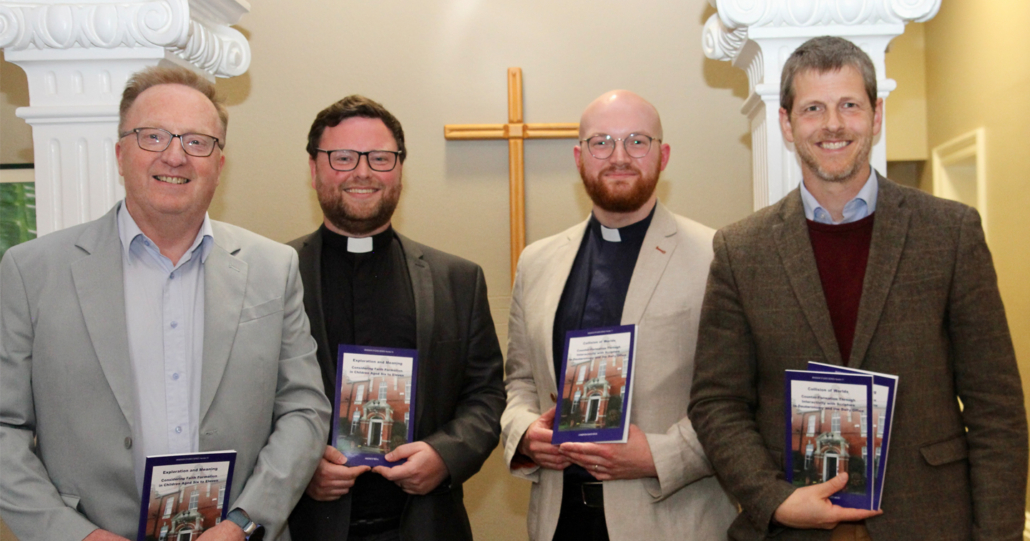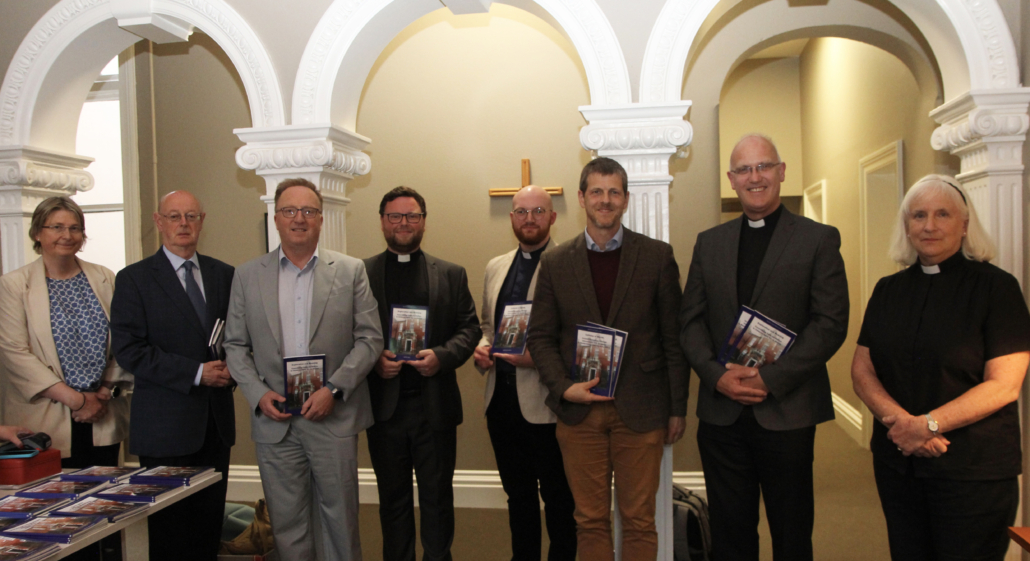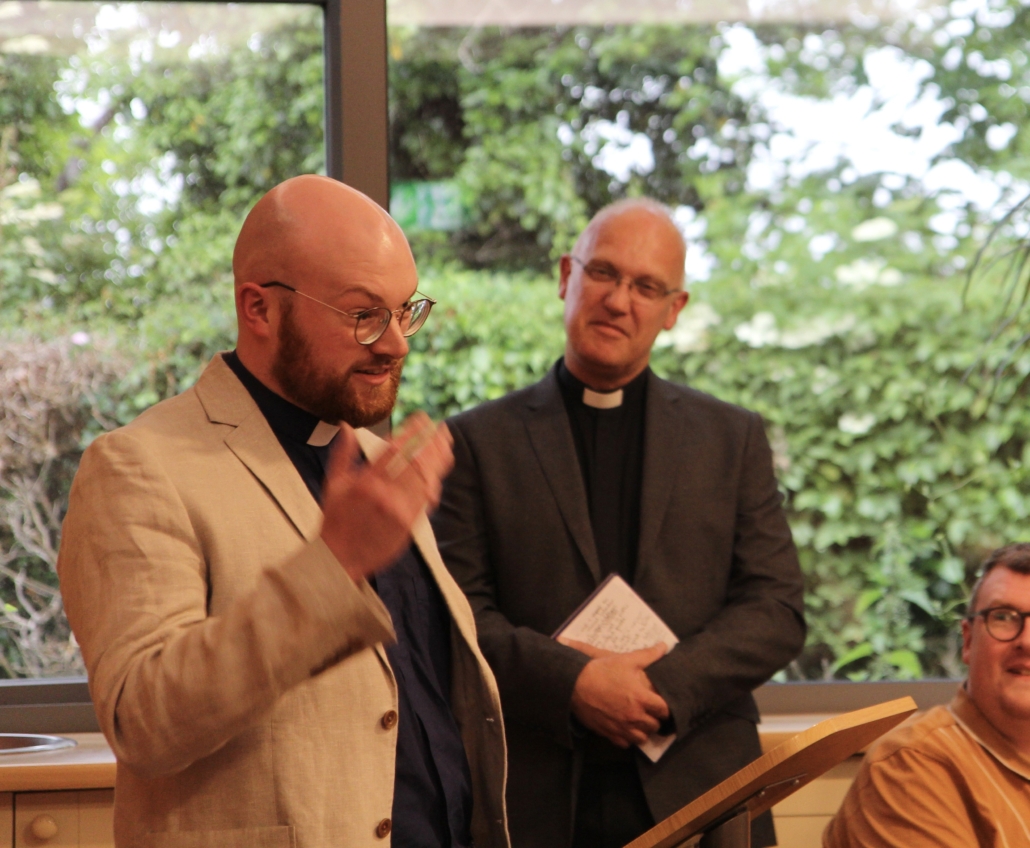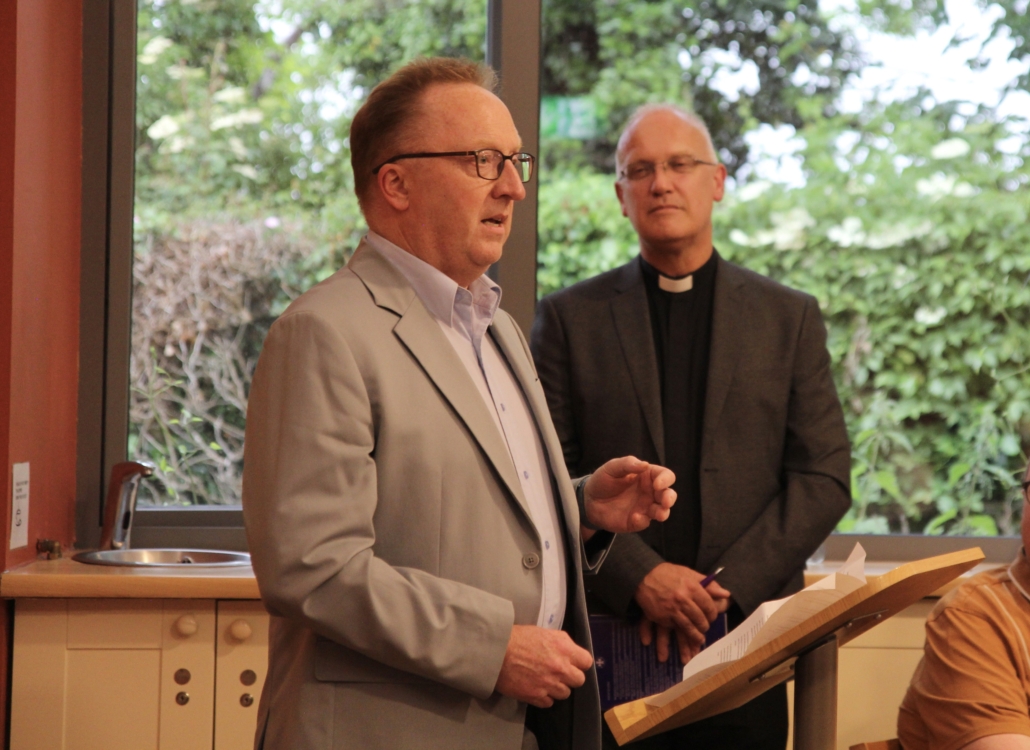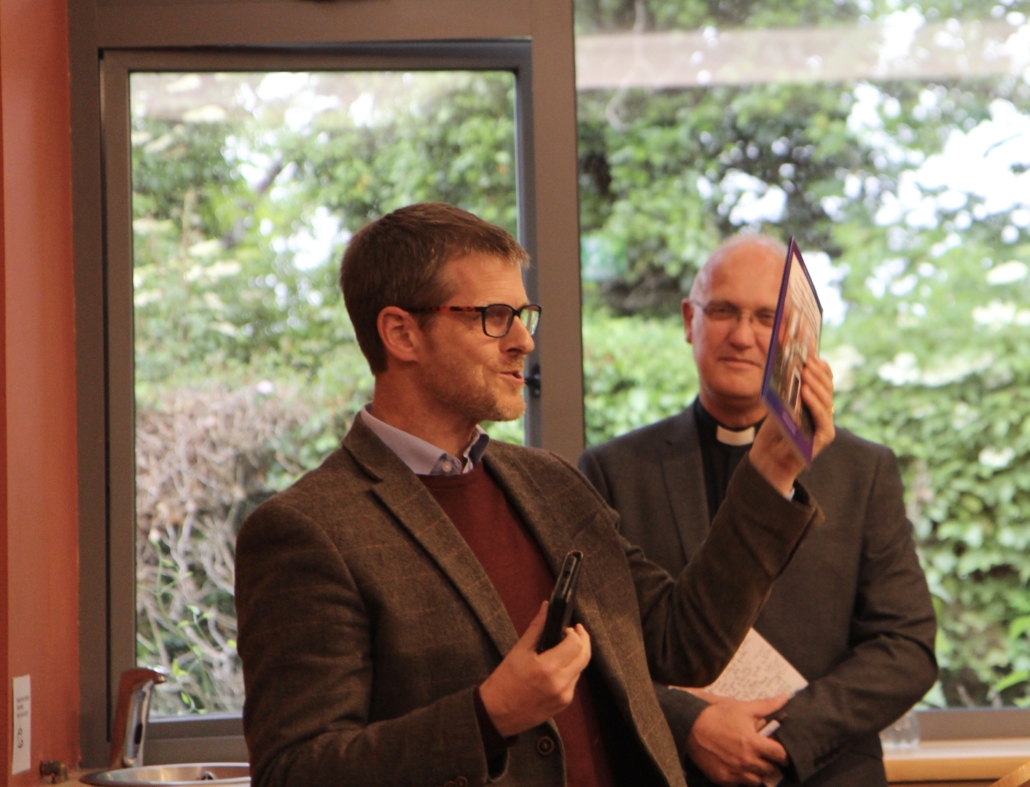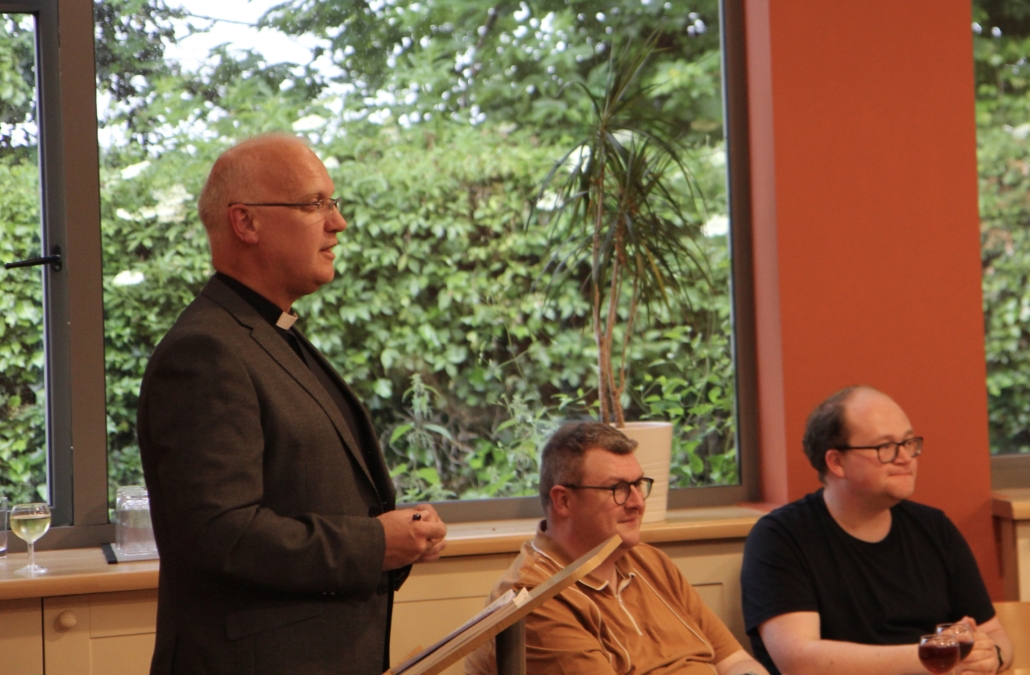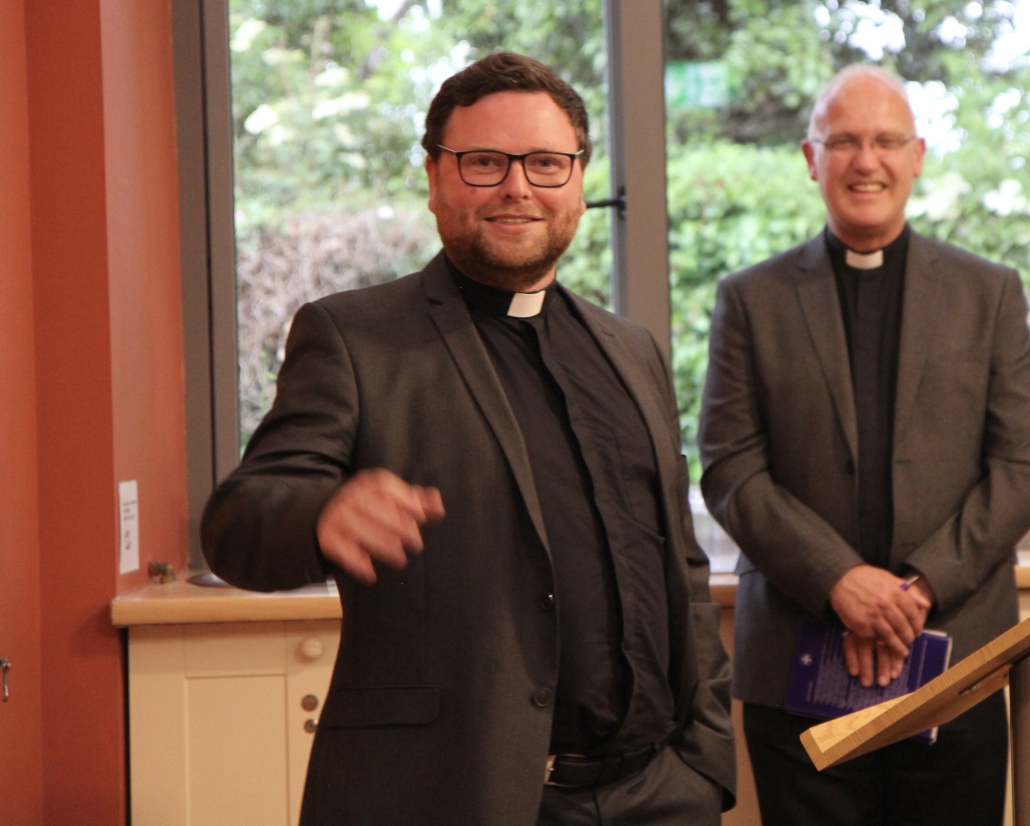Two new Braemor Studies explore areas of faith formation
Two new volumes in the Braemor Studies series were launched in the Church of Ireland Theological Institute last week. The latest launches feature the final year theses of the Revd Cameron Mack who is Curate Assistant in Belfast Cathedral and the Revd Andrew Neill who is Curate Assistant in Limavady.
Collision of Worlds: Counter-Formation Through Interactivity with Scripture in Deuteronomy and the Daily Office is written by Cameron Mack. Exploration and Meaning: Considering Faith Formation in Children Aged Six to Eleven is the work of Andrew Neill.
The Braemor Studies series comprises the final year theses of MTh students which have been selected for publication by the external examiner. Dr Raymond Refaussé, on behalf of Church of Ireland Publishing, noted that the series arose from the recognition that there was a lack of publications in the area of theology. This led to a collaboration with CITI and the final year students.
Launching Cameron Mack’s book, Professor David Shepherd of the Loyola Institute at Trinity College Dublin, said that the book begins by suggesting that the most relevant parts of Deuteronomy for the Church today are those which are least appealing to the modern reader. “Cameron’s argument in this book is that the purpose of Deuteronomy, or at least the first half of it … was not to bore its readers, not even to persuade its readers, but to actually form its readers. And that’s a bold claim,” he said.
He noted that the use of the language of ‘you’ and ‘we’ seeks to make the story the reader’s own story. He said Cameron saw something similar in Cranmer’s Daily Office, for example in a Canticle like the Magnificat, when we recite Mary’s words which can then become our own words. He added that Cameron noted that Deuteronomy lived up to its Greek name (meaning ‘second law’) through the use of repetition and this too is facilitated by the Daily Office at Matins and Evensong.
Professor Shepherd commended the book, stating that it was beautifully written and explored how Scripture and liturgy encouraged us to become not just hearers of the word but doers of the word.
In response, Cameron Mack said that he was a ‘prayer-book person’ but his book was not an act of ‘prayer-book fundamentalism’. “What I was really trying to do was talk about what the Scriptures are, and to talk about what we do when we read them, and what we do when we live a life that centres around reading them in worship,” he said. “It is my hope that whoever reads this volume is helped to see how the Scriptures invite us to participate with all of ourselves in lively ways in the story that is our story.” He thanked all who supported the publication of the book.
Andrew Neill’s book was launched by Dr Peter Hamill, Secretary to the Board for Ministry with Children and Families and the General Synod Board of Education (Northern Ireland). He said the book was timely in raising awareness of children’s ministry and the vital work carried out in parishes.
Dr Hamill added that Andrew’s book was based on research carried out in Connor Diocese which showed that children began to form a strong attitude towards the Church around the age of 10 or 11; this is despite many seeing confirmation as “the great passing out parade in the Church”.
“Andrew has worked on this premise in his research. He begins by exploring theories of faith development and analysing whether they are appropriate in today’s society,” Dr Hamill said. One of his recommendations is to develop training and support for leaders in the Church.
“I wholeheartedly agree with this. We are delighted that the Church has invested permanent funding for Children’s and Families Ministry support,” he said, referencing the recent additional support given from central church funds by the Representative Church Body. “We look forward to further collaboration with CITI and the development of training and support for leaders among children and young people.”
He commended Andrew’s book, saying it sparked interest in children’s ministry and encouraged people to explore how children and young people come to faith.
Andrew Neill thanked all who brought his book to fruition. He observed that children were curious and excitable and get involved in everything. “So the question is why are they not interested in faith? Well, I think the answer is that they are. But how we are communicating that and how we’re giving children space within our church communities to experience that and to make their faith their own, that is significant.
He continued: “Those early years are so significant in the formation of faith and so how do we let these wonderful bundles of energy and exploration thrive? Well let them be, let them do what they want to do, let them explore the churches that we’re in, let them ask the difficult questions… It’s our job to be there to support and encourage them.” The author added that the book was practical and contains tips.
Both books are available on the Church of Ireland website – at the price of £8.50 / €10.00 – through the following links:
Collision of Worlds: Counter-Formation Through Interactivity with Scripture in Deuteronomy and the Daily Office by Cameron Mack
https://store.ireland.anglican.org/store/product/187/collision-of-worlds
Exploration and Meaning: Considering Faith Formation in Children Aged Six to Eleven by Andrew Neill
https://store.ireland.anglican.org/store/product/188/exploration-and-meaning-considering-faith-formation
With thanks to Lynn Glanville (Communications Officer for Dublin and Glendalough) for report and photographs. A full photo album is available in our Flickr gallery at https://flic.kr/s/aHBqjCg7Dr
